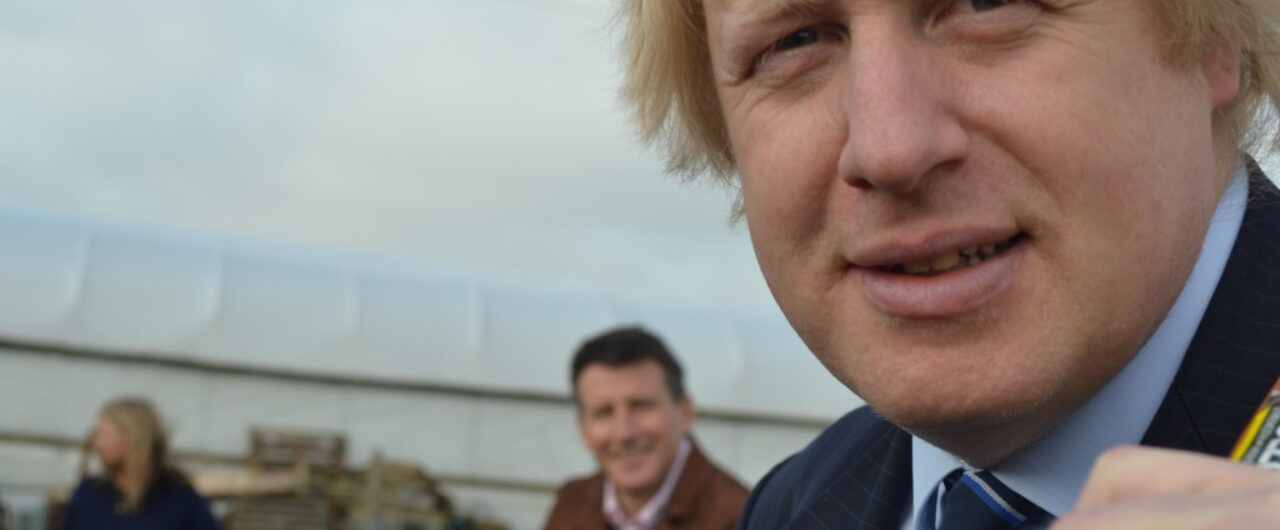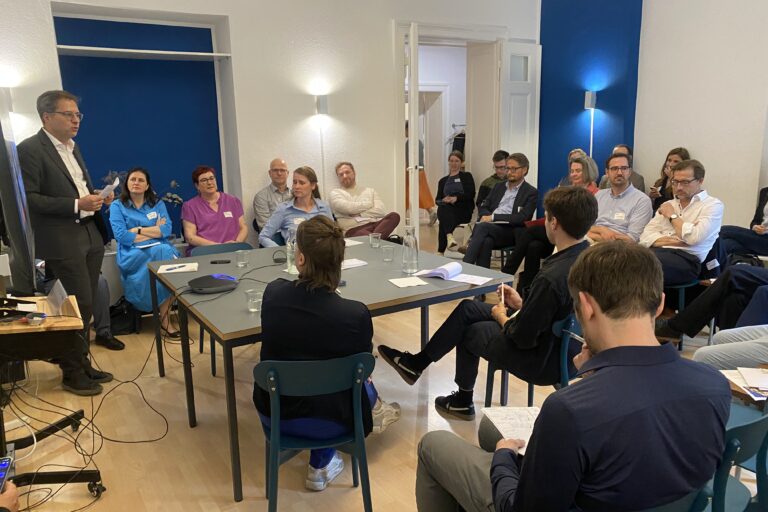As the dust caused by the explosion on 23. June is beginning to settle, we can start picking up the debris to see what may possibly be salvaged from the disaster. It is still much too soon to tell what the final outcome of the referendum will be, which was directed at Westminster, not at Brussels. Probably, Britain will leave the EU. The following thoughts reflect the author’s ongoing despair over the outcome of the referendum of June 23rd and his hope that there is a chance that the UK government will find a way never to send the letter required by article 50 of the Lisbon Treaty.
For the moment, we are reminded of four people in a car going down a one way street, who agree by a majority of three to one to turn around. This, while beautifully democratic, is still stupid. Why, if not for keeping us from making such stupid decisions, do we go through the immensely cumbersome procedure of electing political leaders? How come they dare throw an issue like that back at their principals and lie to them about the facts, when it becomes too sticky for them to sort out, while pocketing a more than handsome reward for acting as our agents? What the people want is courageous leaders who lead and don’t follow campaigns with ulterior motives that drum up public opinion.
Why did all this come about?
First of all, David Cameron’s government showed a horrific lack of leadership, while in the run-up to the referendum, a bunch of shockingly irresponsible politicians lied to the voters. Nobody seemed to notice that the Leave camp did not have even the sketchiest of plans what to do in case of victory. On the other side, the Remain campaign had all the arguments, but no conviction or mission. However, the outcome of the referendum is the inevitable result of many decades of refusing to come to terms with the modern world and Britain’s role in it. As close as one may feel to one’s country’s glorious past, there is no way one can get round letting bygones be bygones and looking ahead.
What no European politician seems to realize is that we are in the middle of a fundamental crisis of Western-style democracy. The standards of politics and public service have deteriorated everywhere in Europe. Sleezy party politicians and insensitive civil servants have let the notion of a state fall into disrepute. Checks and balances no longer work. For many, democracy has become an absurd game. An increasing number of business leaders see China as a valid post-democratic option, affording them more influence. Strangely, many people are full of Angst and succumb to anyone who promises authority.
What does this mean for Europe?
The United Kingdom will probably break up, which will be important for Scotland and dramatic for Northern Ireland. Europe on the other side will miss the pragmatic, experienced, and well-infomed voices of Britons in shaping the future of Europe. The European Union, for years to come, will have to deal with Brexit rather than getting on with its far more urgent business. Clearly, Europe has lost its prestige in the world and is no longer the continent that sets the standards, but one that cannot get its act together.
On the bright side, Britons are now forced to discuss and finally decide what Britain should look like in this century. If Britain does choose to remain, she will have to behave herself. All over Europe, including the UK, civil society and individual citizens are beginning to think for themselves. Rather than seeing the European Union as the worst possible solution bar the others, they take pride in this unique venture of shaping their future together.
Moreover, within the EU, the balance of power will be reframed. As the treaty stands, it is the 28 national governments that make up the Council who are in the driver’s seat, and while neither the Commision nor the European Parliament should question that, the Council may begin to accept the responsibility and pledge to be loyal to the Union rather than to its members. Hopefully, palming anything that is uncomfortable off on to the Commission and then blaming it for making unnecessary rules, will slowly come to an end.
What should we think about?
e must take the European project out of the hands of economists, lawyers and regulators. What Europe needs is a vision, not ever more complicated rules and political compromise. We want a varied and colourful Europe and we must shape the notion of a European demos. By definition, this will be ultranational and will entail complex arrangements of mixed loyalties to family and friends, segments of civil society, and multiple governmental structures. In general, we need to take into account that European Civil Society has gained strength and power and is currently gaining momentum. 21st century society will be built on a functioning division of responsibilities and checks and balances system between civil society, the state and the market.
Therefore, Europe’s intellectual elites must think what a European governmental structure could eventually look like. Europe will not be the United States of Europe built on the theory of the United States of America in the 18th, nor a Union of Sovereign States like the German Confederation in the 19th century. It could well be the United Regions of Europe, which would ease tensions between the smaller and the larger EU member states, or it could be something quite new. We need lots of proposals on the table to discuss, whereas at the moment, we have none.
Germany for its part, is now in the uncomfortable position of having to assume a rather solitary leadership role, for which the government, let alone the citizenry is neither well prepared nor well suited. Yet, Germany’s geography and size, the strength of its economy, and, in comparative terms, its political stability all seem to suggest this. We can only hope the German government will continue to act with extreme prudence and caution. In a sense, the way the government handled last year’s refugee crisis has become Germany’s entry ticket to the global village. Germany, for the first time in history, has become an immigrant society – like the rest of Europe.
Finally, there is no alternative but to get on with building the Common House of Europe. This will have to be achieved by the citizens bottom-up, and with the help of committed and honest leaders. We have nothing else to offer to our children and grandchildren and most importantly, it will be a great place to live in!
Dieser Beitrag erschien zuerst im Debattenmagazin Berliner Republik 3/2016.




